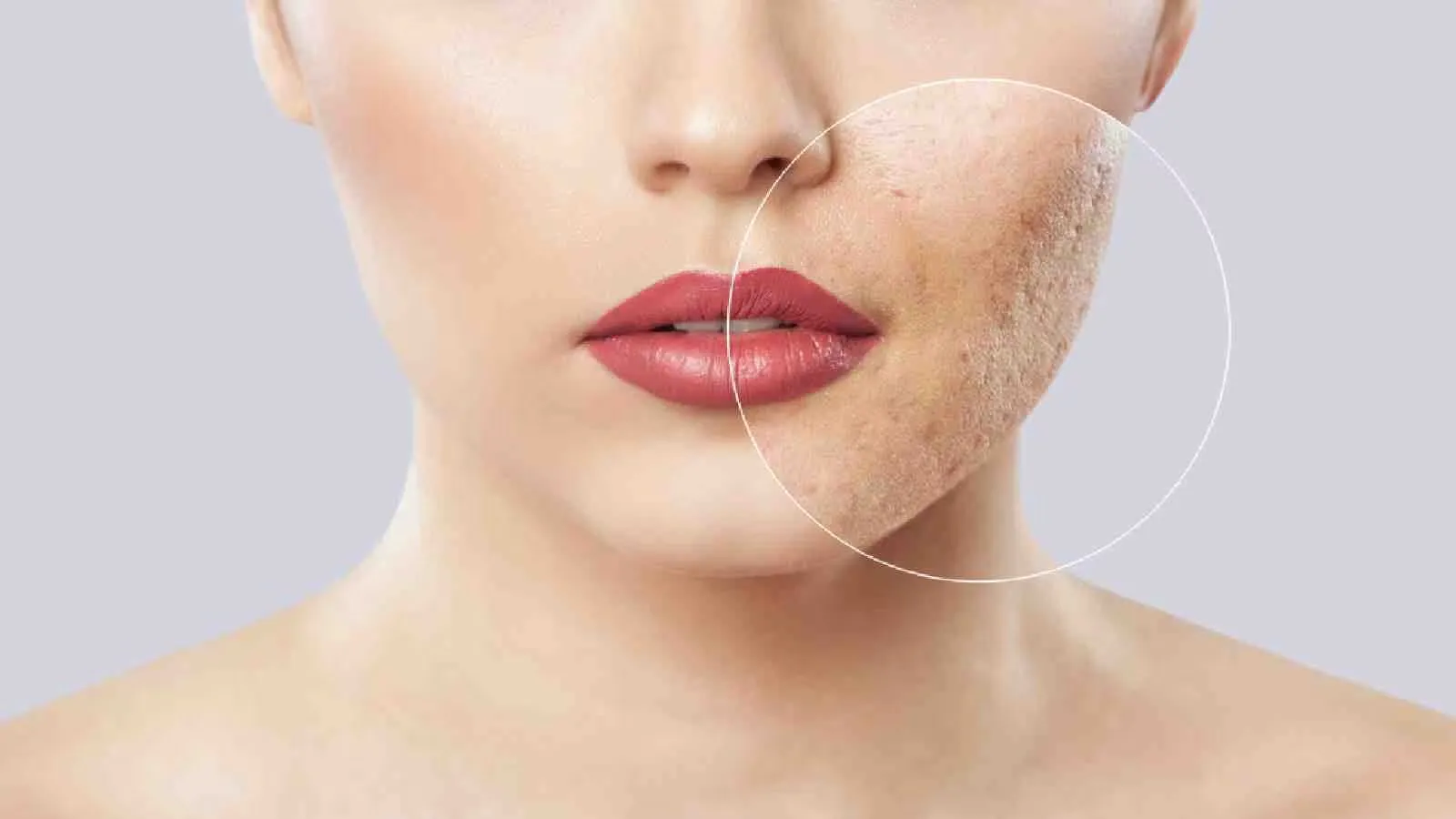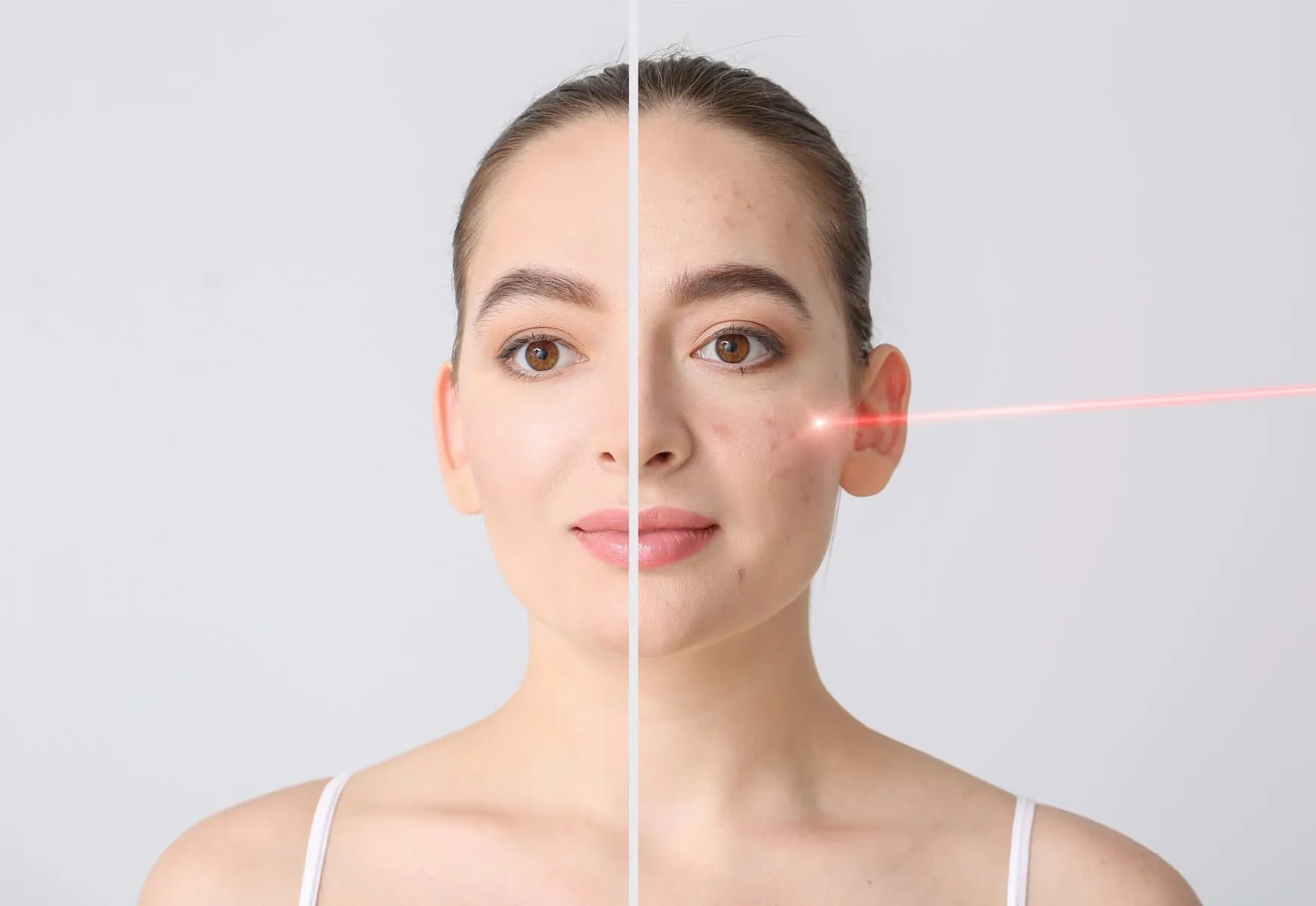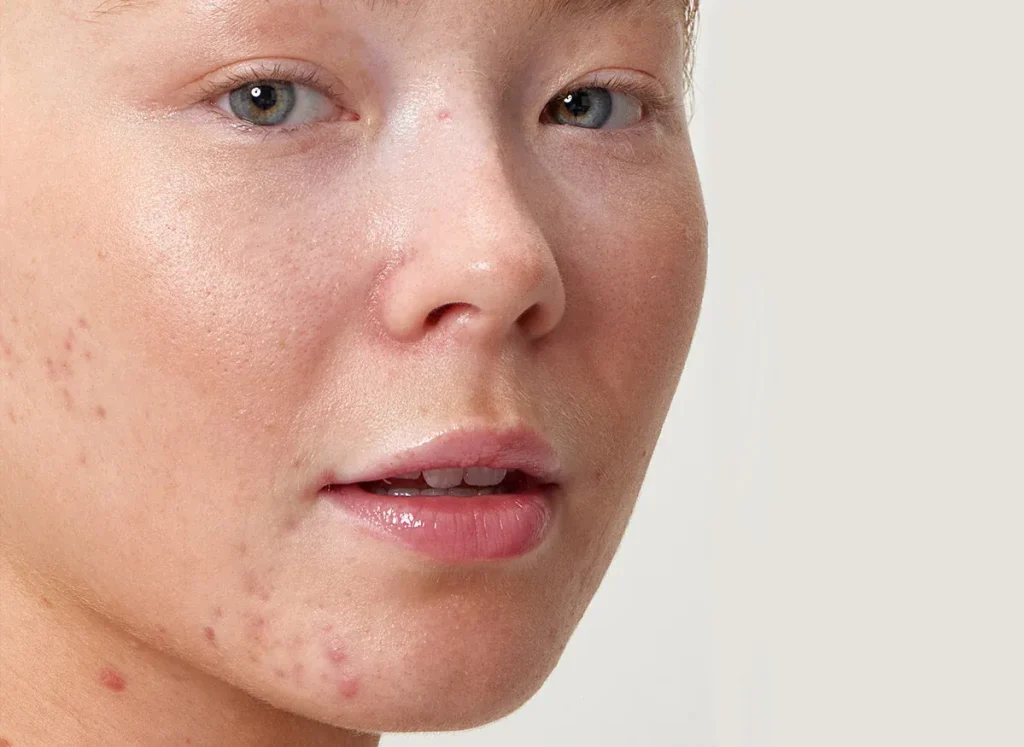Acne scars can be a persistent reminder of past breakouts, often causing distress and self-consciousness for those affected.
While getting rid of acne scars entirely may not be possible, there are numerous treatment options available to minimize their appearance and help restore smoother, clearer skin. In this comprehensive guide, we’ll explore various strategies for addressing acne scars, including professional treatments, skincare products, and lifestyle changes.

Understanding Acne Scars
Before delving into treatment options, it’s essential to understand the different types of acne scars and how they form. Acne scars typically fall into two main categories: atrophic scars and hypertrophic scars.
- Atrophic Scars: These scars result from a loss of tissue, leaving depressions or indentations in the skin. The most common types of atrophic scars include ice pick scars, boxcar scars, and rolling scars.
- Hypertrophic Scars: Unlike atrophic scars, hypertrophic scars are characterized by raised, thickened areas of skin that develop as a result of excess collagen production during the healing process.
Treatment Options for Acne Scars
1. Topical Treatments
- Retinoids: This topical retinoids, such as tretinoin or adapalene, can help improve the appearance of acne scars by promoting cell turnover and stimulating collagen production.
- Vitamin C Serums: Vitamin C serums contain antioxidants that can help brighten the skin and fade hyperpigmentation associated with acne scars.
- Alpha Hydroxy Acids (AHAs) and Beta Hydroxy Acids (BHAs): These exfoliating acids can help improve skin texture and tone by removing dead skin cells and promoting cell renewal.

2. Professional Treatments
- Chemical Peels: Chemical peels involve applying a chemical solution to the skin to exfoliate the outer layer, revealing smoother, more even-toned skin underneath.
- Microneedling: Also known as collagen induction therapy, microneedling involves using tiny needles to create micro-injuries in the skin, stimulating collagen production and improving the appearance of acne scars.
- Laser Therapy: Laser treatments, such as fractional laser resurfacing or intense pulsed light (IPL) therapy, can target specific areas of pigmentation and stimulate collagen production for smoother, more even skin.
3. Injectable Treatments
- Dermal Fillers: Injectable fillers, such as hyaluronic acid or collagen, can help plump up depressed acne scars and create a smoother skin surface.
- Steroid Injections: For hypertrophic scars, steroid injections can help reduce inflammation and flatten raised areas of skin.
4. Surgical Procedures
- Punch Excision: This surgical technique involves removing individual acne scars and repairing the skin with stitches or a skin graft.
- Subcision: Subcision involves using a needle to break up scar tissue beneath the skin, releasing the tethering that causes depressed scars to appear.

Lifestyle Tips for Managing Acne Scars
In addition to professional treatments and skincare products, certain lifestyle changes can help improve the appearance of acne scars and prevent new ones from forming:
- Practice Sun Protection: Sun exposure can worsen the appearance of acne scars by triggering melanin production and causing hyperpigmentation. Wear sunscreen daily and seek shade when outdoors to protect your skin from UV damage.
- Maintain a Healthy Diet: Eating a balanced diet rich in fruits, vegetables, and whole grains can support skin health and promote healing. Avoiding processed foods and sugary snacks can help reduce inflammation and breakouts.
- Avoid Picking or Squeezing Pimples: Picking or squeezing acne lesions can increase inflammation and the risk of scarring. Resist the temptation to pop pimples and instead opt for gentle skincare products and treatments.
Conclusion
While getting rid of acne scars completely may not be feasible, there are numerous treatment options available to minimize their appearance and restore smoother, clearer skin. Whether through topical treatments, professional procedures, or lifestyle changes, addressing acne scars requires patience, consistency, and expert guidance from dermatologists. By understanding the different types of acne scars and exploring various treatment modalities, individuals can take proactive steps toward achieving a more confident complexion.
Acne scars can be a source of frustration, but with the right approach and perseverance, you can effectively reduce their visibility and regain confidence in your skin’s appearance.
Read More…

